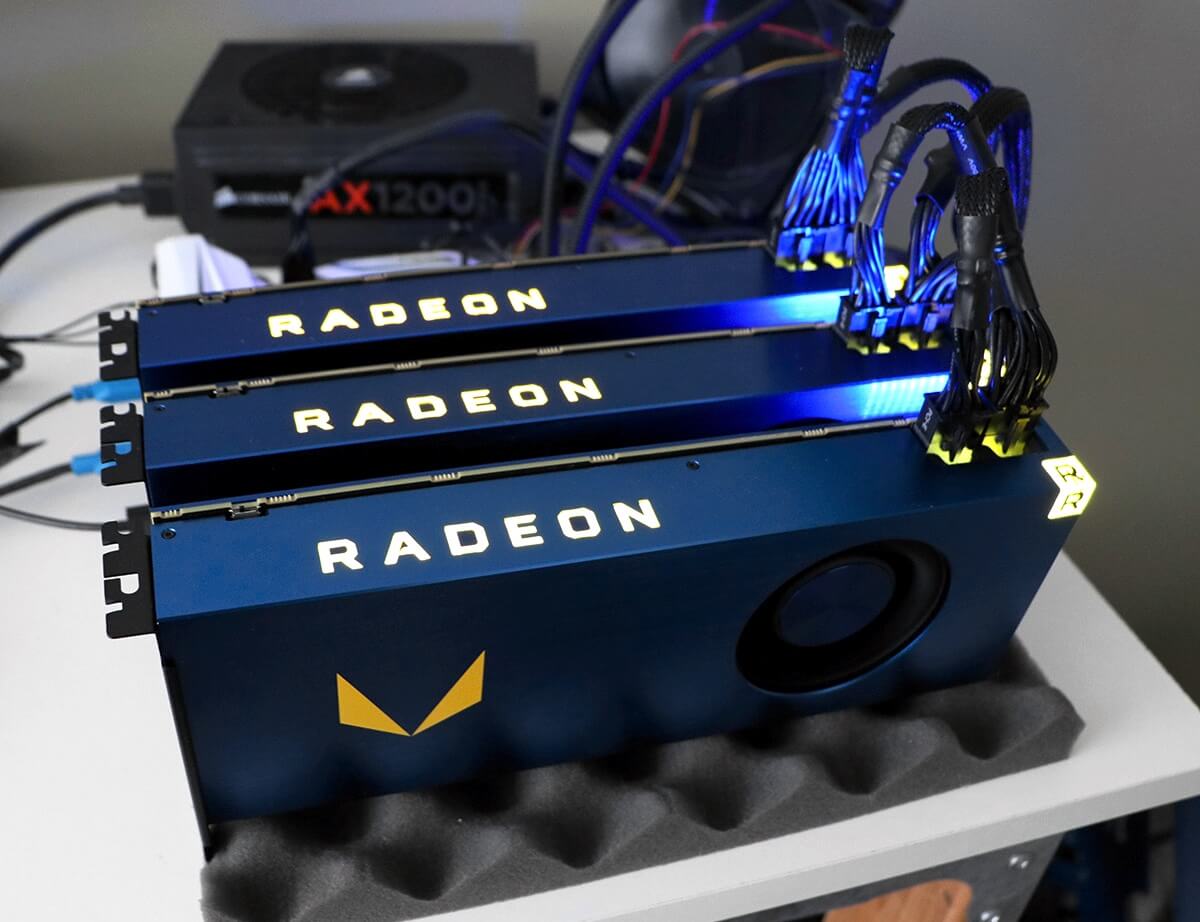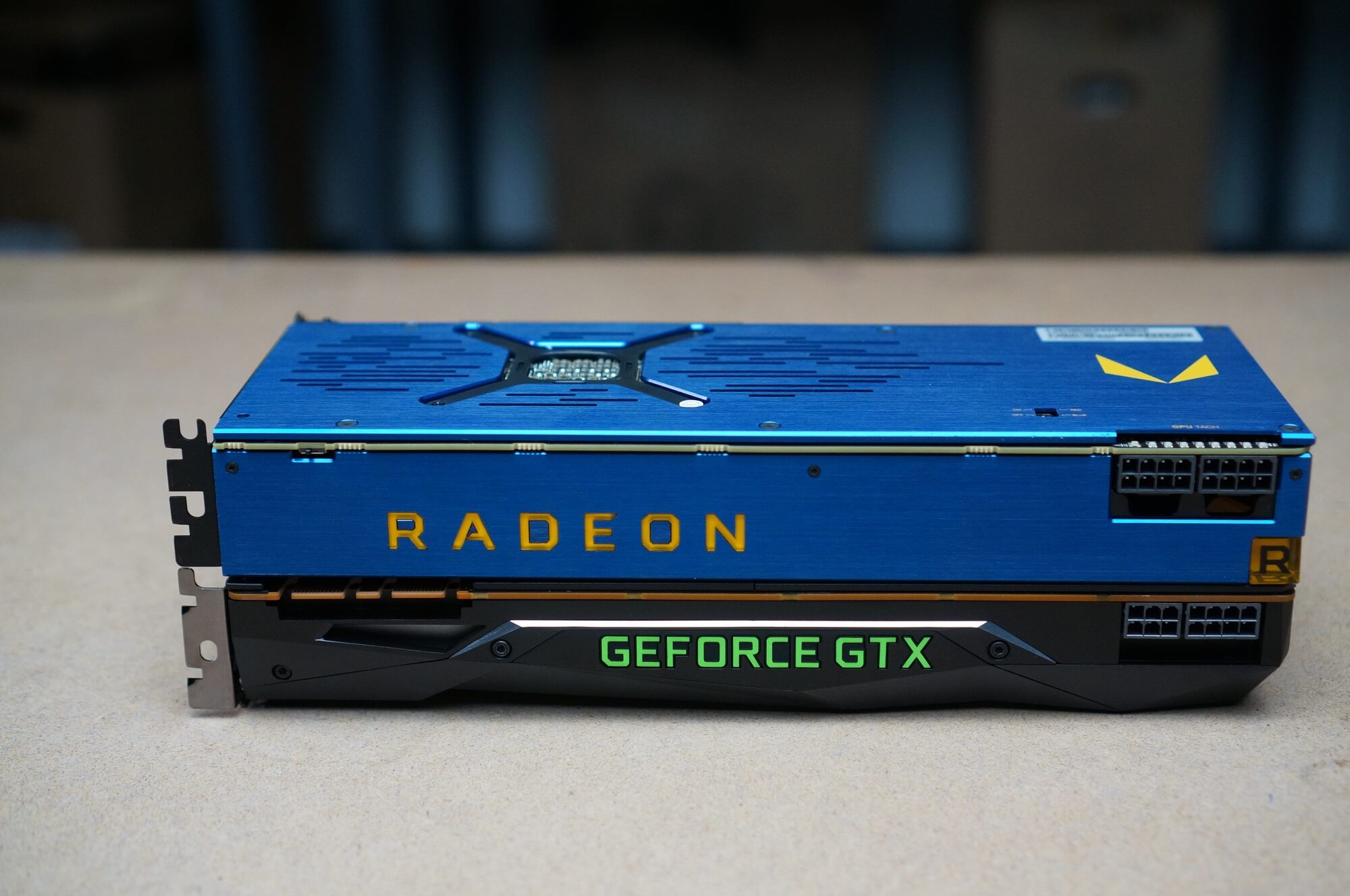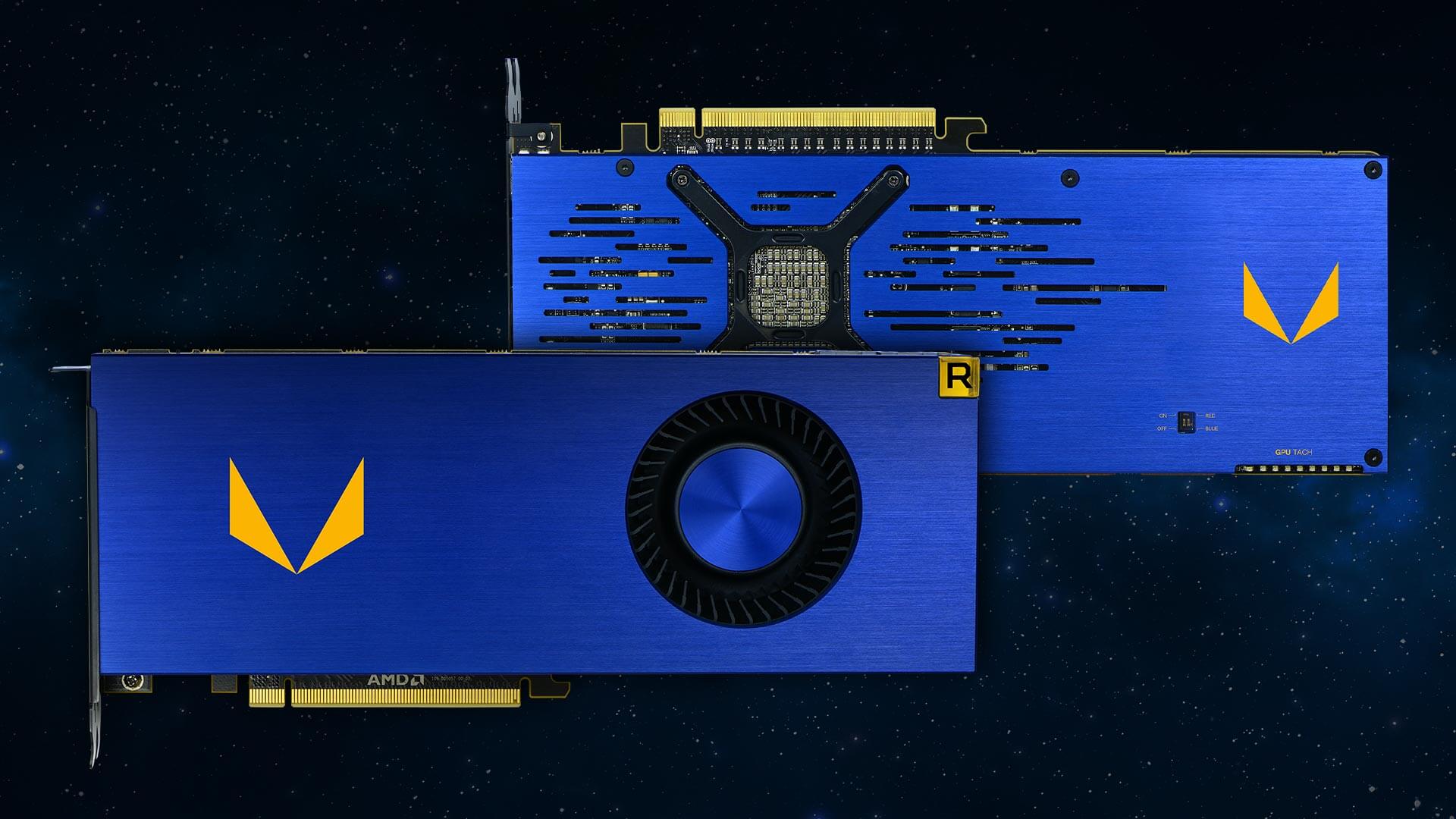We recently noticed some information regarding the poor availability of AMD's Radeon RX Vega GPUs that we'd like share with you by way of conjecture. Before we get going, as a reminder, AMD released the Vega 56 and Vega 64 graphics cards back in August, some five months ago. At the time they sold out in seconds and since then supply has been unable to meet demand with miners being mostly to blame for this.
Despite the poor availability, a good many of you have been asking us to review custom RX Vega graphics cards from one of AMD's partners. This request likely comes at least in part due to my comments openly bashing AMD's reference design, claiming that it's hot, loud and that you simply shouldn't buy it.
Many custom models have been announced, but getting your hands on any one of them is next to impossible – I can't even get one, despite AMD saying that it's willing to support me directly. I've heard for months that the cards are coming, until last week when two of AMD's board partners told me that they wouldn't be coming after all.
This had me confused and after making a few more inquiries it was confirmed by one exclusive partner and one massive partner that the custom cards have been effectively canceled as the companies are no longer receiving Vega 56 and 64 GPUs from AMD, and its reference models weren't being supplied either. No Vega graphics cards were being sold by these partners.
That didn't seem right to me, so I dug a little more. First I went to check Newegg to see who has RX Vega cards in stock and specifically what models/brands, but I found nothing! Newegg did list some custom Gigabyte models at insane prices with no stock along with a single PowerColor model, also out of stock, as well as a reference model sold by XFX which was likewise unavailable. What was in stock was the 'Vega Frontier Edition' and I'll come back to that shortly.

Image credit: Legit Reviews
Every other US retailer I checked also showed zero stock for the Vega 56 and Vega 64. It's the same story for Australian retailers. In fact, PC Case Gear now list just a single Vega 56 model, which is of course out of stock. I also tried the AMD shop on their official website and checked all the links they provide to various retailers – none of them had stock for either model.
I also decided to have a look at pre-built systems, though there are almost none that feature RX Vega graphics cards. That said I do know of one, a CybertronPC packing an AMD Ryzen Threadripper 1920X with a reference RX Vega 64 graphics card at Best Buy, who has more than two dozen system to choose from yet only with an RX Vega card inside. And guess what? It's the only PC out of stock.
There's one exception to the Vega's availability and that's Apple. AMD obviously wouldn't want to upset the apple cart, so you can still buy a horrendously overpriced iMac Pro to get a Vega 56 or Vega 64 graphics card. It's only $8,260 (Aussie) for the Vega 64 version with an eight-core Xeon CPU, 32GB of memory and a 1TB SSD.
At this point, I realized two things: there didn't appear to be a single Vega 56 or 64 card in stock anywhere in the US or Australia. That's not completely unusual for Vega, but I was intrigued by that detail knowing that AMD's partners told me the company isn't currently taking orders for either GPU.
What does all of this mean exactly?
My first thought was that maybe there's a serious issue with production. Could yields really be that bad, though? By now you'd expect yields of the massive 486mm2 die to have begun improving so it seems likely to me that some other cause is to blame.
At this point, I realized two things: there didn't appear to be a single Vega 56 or 64 card in stock anywhere in the US or Australia. That's not completely unusual for Vega, but I was intrigued by that knowing that AMD's partners told me the company isn't currently taking orders for either GPU.
Then it occurred to me that while you can't buy a single Vega 56 or 64, there are quite a few Vega Frontier Edition graphics cards in stock. I also recalled seeing Frontier Edition models for sale. On Newegg we can see the air-cooled version selling for $1,500 or $9,000 for half a dozen of them with a six-piece riser kit included.
I should note that these Frontier Edition graphics cards are being sold via Newegg through a third party seller called 'uShopMall,' so not Newegg itself. At the time of writing, Newegg didn't actually have stock, so the Frontier Edition can still be difficult to track down, especially at a reasonable price.
By now I began to speculate that AMD hadn't reduced supply of Vega GPUs, but rather it seems that the company has redirected all available supply to its Frontier Edition line. Miners would prefer to buy Vega 64 as it's essentially the same product, packing the same GPU with half as much HBM2 memory with an MSRP of $500. Meanwhile, the Vega Frontier Edition's list price is $1,000.
Granted, HBM2 memory is expensive. The best estimates put 8GB at around $150, so assuming we can double that for 16GB, that means there's about $150 of additional memory ($300 total) on a Frontier Edition card. AMD is charging at least $500 more than that, so they're pocketing around $350 more on the deal. This is assuming that when selling directly to retailers such as Newegg, AMD isn't increasing the price themselves. I have no evidence of that, just saying it's possible.
What I do know is that AMD sells its reference design RX Vega cards to partners who then attach their brand before pushing them out to distributors and/or retailers. Generally, this is done to take up the slack before the board partners produce their own custom designed models and at that point AMD is just selling them the GPU.

Image credit: Gamers Nexus
With the Frontier Edition, AMD makes those exclusively, or rather it contracts a manufacturer to produce them, which means that AMD sells its Radeon Pro cards directly to distributors and retailers. This way, the company has a bit more flexibility when it comes to pricing and they're of course cutting out the middle man.
In today's market, every last GPU you can produce is being snapped up practically before you can get it out the factory door, and at alarmingly high prices thanks to price gouging by board partners, distributors, retailers and maybe even AMD themselves. Why would AMD even entertain the idea of selling that product for $400 or $500 when they can get at least $1,000?
Speaking of price gouging, Newegg merchants are selling the $1,000 Frontier Edition for $1,599, but they also have the Vega 64 listed for $1,400 should it become available. Again, the blame here might not be entirely on retailers, we just don't know what AMD is charging them, even if I tend to believe that AMD is not overcharging.
As for shipping Frontier Edition models only, or at least focusing the bulk of production away from Vega and toward mining cards, that makes sense for AMD to do and I can honestly understand why they would do it. Again, to be clear I'm only speculating, although the evidence certainly suggests that is the case. Their compute-heavy fifth-generation GCN architecture is highly desired by miners and there's not much AMD can do about that. For now, the goal would be to pump out as many Vega GPUs as possible, slap them on Frontier Edition graphics cards and maximize profit.
In the short term, the situation sucks for gamers and I'd bet some of you are ready to put the blame on AMD. But as I said, I don't really have a problem with this, if that's indeed what AMD is doing. When retailers start selling Vega 64 graphics cards for over $1,000, AMD doesn't make a single extra dollar from that sale.
Where they do make many more dollars is when they sell that same GPU on a Frontier Edition card. And if that profit contributes toward developing better gaming graphics cards down the line, then that's great. Let's be honest, on the gaming front, AMD is being bested by Nvidia at almost every price point.

Image credit: PC World
Had it not been for this seemingly never-ending mining boom, AMD's GPU division would be in poor shape right now and you'd see loads of Vega 56 and 64 graphics cards on shelves, because just about every gamer who wanted one would have already bought one.
I've reached out to AMD for a comment on this story and as you'd expect at this point the company is neither confirming nor denying. All it said was that it's working on a formal statement and that it will come out after they announce earnings:
"We are currently in quiet period in advance of announcing our fourth quarter financial results on January 30th and are unable to comment at this time on certain financial-related items such as GPU demand or market pricing."
Again, to be clear, I'm in no way bashing AMD and I think they are making the right move here, assuming I'm right. AMD has told me that they are fully committed to gamers and working on devising ways of making GPUs available to them again. Not much different to what competitor Nvidia is also saying.
Although everything we've discussed so far contradicts this statement, it seems the current neglect is the result of a quick reaction to address a temporary issue, while long term solutions should hopefully look different.
Bottom line, don't expect custom Vega 56 or 64 graphics cards (or our prompt review of them) anytime soon. It's a real shame and we wish for a future with stronger competition between AMD and Nvidia, much like what we're seeing between AMD and Intel right now.
